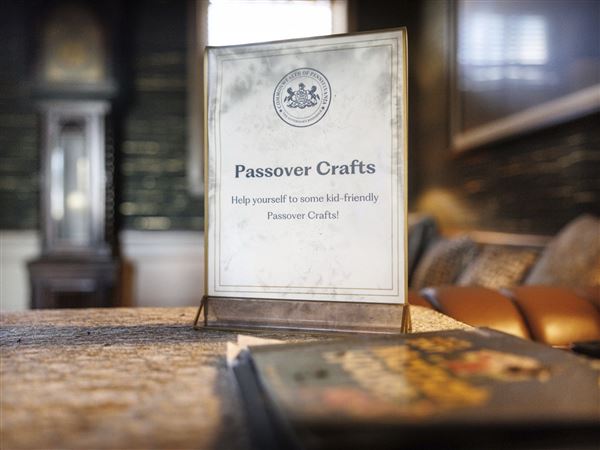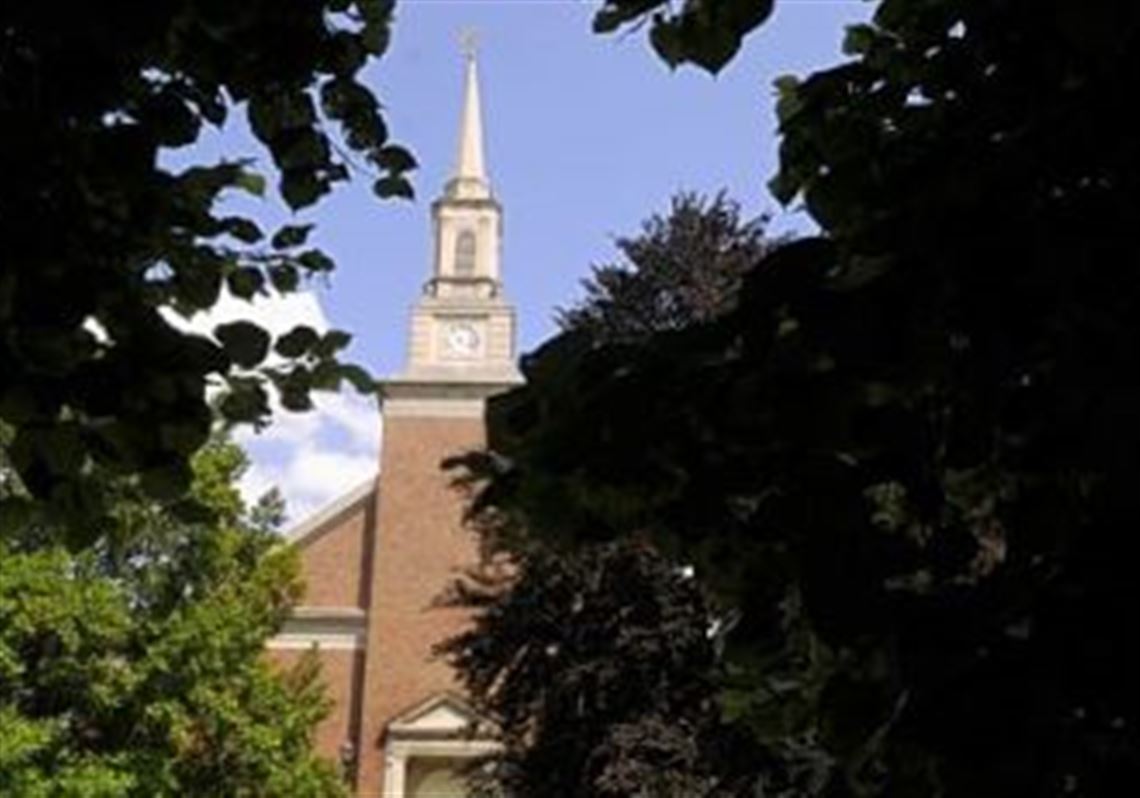The umbrella group for Pittsburgh’s Jewish community says it will stop “publicly partnering” with Pittsburgh Theological Seminary after the seminary hosted a Palestinian Christian speaker who the federation contends uses rhetoric that is “theologically loaded” with anti-Semitism in his criticism of Israel.
The president of the seminary said he’s disappointed with the decision and that the school remains open to different viewpoints and to working with synagogues and other Jewish organizations.
Joshua Sayles, director of the community relations council of the Jewish Federation of Greater Pittsburgh, announced the break in ties with the seminary after it hosted the Rev. Naim Ateek, an Anglican priest and co-founder of the Sabeel Ecumenical Liberation Theology Center in Jerusalem. He spoke there May 14.
Rev. Ateek’s most recent book, “A Palestinian Theology of Liberation,” draws on Christian teachings on non-violence and the liberation of the oppressed as seen through the lens of Palestinian experience.
But Mr. Sayles said Rev. Ateek goes beyond principled criticism of Israeli policy and invokes centuries-old anti-Semitic stereotypes, such as describing Israel as “crucifying” Palestinians under occupation, to deny the very legitimacy of a Jewish state.
“Sabeel hides behind a language of peace, but in reality uses theologically loaded rhetoric that when examined more closely, rejects Israel as a Jewish state,” Mr. Sayles said in a statement.
“The organization speaks of the formation of Israel as the ‘original sin,’ where Israel is cast as a colonizer that was only formed as a result of European intervention after the Holocaust,” Mr. Sayles said. “There is virtually no mention of a continued Jewish presence in the land for 2,000 years, and the Palestinian refugee issue is described as ‘ethnic cleansing.’”
Mr. Sayles said he values individual relationships with those at the seminary but that the two institutions will not work together on sponsoring programs, causes or other activities. “It’s disappointing because there are a number of other issues upon which our communities see eye-to-eye,” he said.
The Rev. David Esterline, president of the seminary, said it has “had a long and constructive relationship with the Jewish community in Pittsburgh” through speaker exchanges and other projects.
“I would regret that the Jewish federation has chosen to take this stance,” he said, but believes “we’ll continue a healthy relationship with the Jewish community” in other settings.
He said the seminary has numerous centers, programs and other entities that sponsor speakers and other programs, and the seminary provides space for a multiple viewpoints, including speakers and events that could be seen as more pro-Israel.
When the group Friends of Sabeel asked whether the seminary could host Rev. Ateek, “We agreed partly because of our commitment to be a place where constructive conversation can take place,” Rev. Esterline said.
The Highland Park seminary is affiliated with the Presbyterian Church (U.S.A.), which largely shares a liberal agenda on domestic policy but has diverged over the Middle East.
“There is plenty of criticism of Israel to go around that isn’t anti-Israel and doesn’t go into anti-Semitism,” Mr. Sayles said, but added that the Ateek speech was the latest in a series of events at the seminary that raised similar concerns.
He hopes the federation’s action spurs both sides to “begin to repair the relationship.”
Tina Whitehead of the group Friends of Sabeel, who has volunteered with Mr. Ateek’s organization in Jerusalem and helped organize his visit here, said she had “never heard a hateful word out of him toward anyone. He has a pastor’s heart.”
Rev. Ateek’s “focus is four things: peace, justice, reconciliation, forgiveness,” Ms. Whitehead said. “Peace is peace for all people. Justice is justice for all people.”
At recent general assemblies, the Presbyterian Church (U.S.A.) has debated statements highly critical of Israel and its occupation of Palestinian lands, and it has endorsed the divestment from Western corporations deemed to be profiting from the occupation.
With another assembly approaching next month, the American Jewish Committee announced it would not send representatives to advocate for Israel, as it has in the past.
“No longer can we participate in a [general assembly] drama whose best-case scenario is exaggerated Jewish relief that anti-Israel resolutions are marginally toned down before passage,” said a statement by Rabbi Noam Marans, who directs the committee’s interreligious relations. He said the group would continue dialogue with Presbyterian congregations and other grassroots groups.
Peter Smith: petersmith@post-gazette.com or 412-263-1416; Twitter @PG_PeterSmith.
First Published: May 25, 2018, 10:26 p.m.

















